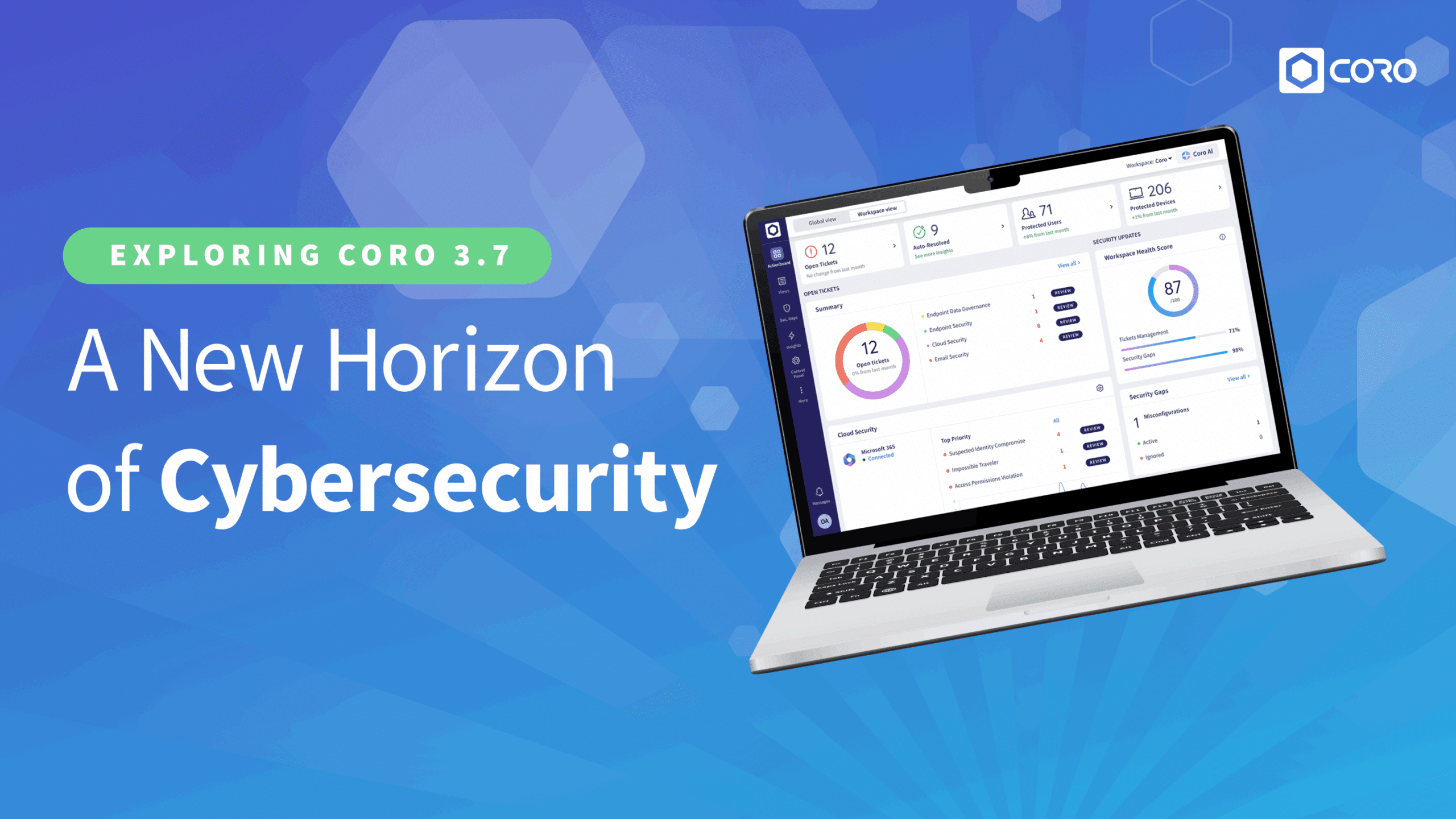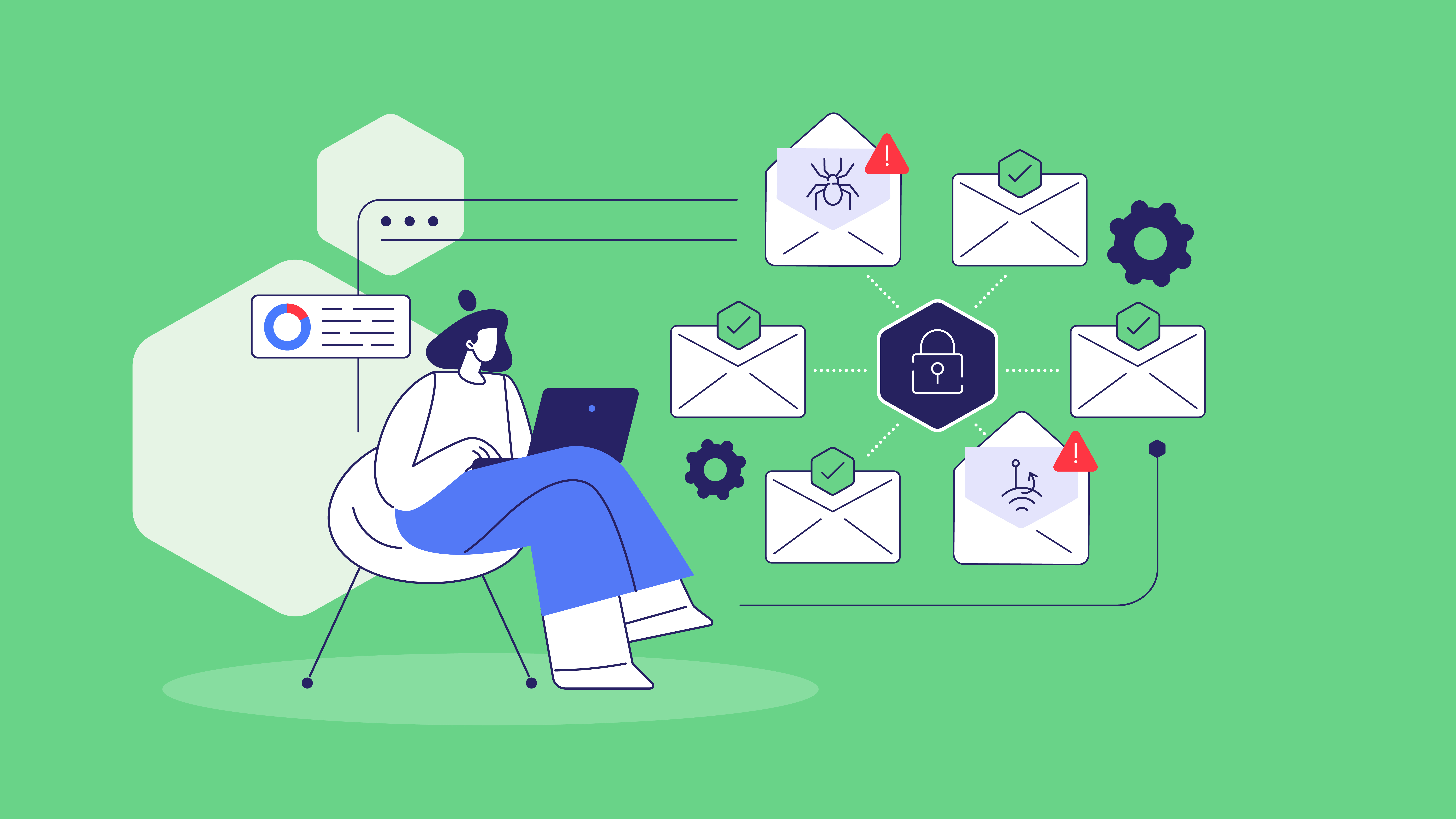As cyber threats continue to grow in volume and sophistication, businesses are determined to keep their networks and data safe and secure.
But which is the best way to do that: standalone apps that target specific areas and are purchased from different vendors, or a comprehensive platform from a single company?
You can compare cybersecurity to home security. You might have a deadbolt on a door to prevent break-ins. And while it keeps strangers from barging in, it won’t let you know if someone has climbed through an upstairs window.
Others opt for a more sophisticated, unified system—a doorbell camera, an alarm, a smoke detector, and motion sensors—to keep their homes safe and secure from all threats. These comparisons can help explain the differences between a cybersecurity platform and a mix of standalone security applications.
First though, let’s define software platforms and apps.
What is a Software Application?
A software application is designed to fulfill a specific task for an end-user or another application. In cybersecurity, an application is a specialized software program designed to protect your computer systems and networks from various threats. These applications can target specific areas of security or offer a broader range of protection, like email security apps, endpoint protection apps, and others.
The Pitfalls of Standalone Apps
If you’re a small or medium-sized business, standalone applications may seem like the right move. That way, you can hone-in on the most likely threats to your organization, and skip paying for anything you don’t. The problem is if you’re a small business, you might not have a fully-devoted cybersecurity team. And that’s understandable, because a lot of smaller organizations don’t have the resources. Due to that factor though, you might be focusing on the most likely threats, but inadvertently overlooking new or developing threats.
Along with that, standalone apps don’t tend to communicate well with ones from different companies. For example, if you have an endpoint app from Cybersecurity Empire and an email app from Cybersecurity Depot, since the two pieces of software were built by different companies, there’s a good chance you’re going to have a difficult time getting them to integrate seamlessly. And that can create gaps in your overall coverage that can be exploited.
This is without mentioning the overall costs, contracts, and burdens of maintaining a cybersecurity stack built on software from various vendors, each with their own data engine, agents, and interfaces. Even if all your software apps are connected through integrations, they’re likely not seamlessly connected and communicating back and forth, because they were never meant to do that in the first place.
What is a Software Platform?
A software platform hosts a variety of applications or services that all function together. One key example is the operating system (OS) on your laptop or phone. It has built-in apps that are native to the platform, but it can also host third-party apps (Google, Slack, Teams, etc).
In a cybersecurity context, a software platform refers to a unified system that integrates various security tools and functionalities under one umbrella. Typically, a platform includes a single interface that can be used to manage all the security tools, which makes it easier to update, configure, and manage.
Cybersecurity platforms are designed to be comprehensive, integrating various native tools like protection for endpoints, emails, and networks. This ensures you have no weak spots for attackers to exploit.
The Benefits of Platform Security vs Applications
The major benefit of platform security is its comprehensive nature—it encompasses multiple functions, which simplifies management and allows for a more consistent and thorough defense. This holistic approach delivers a multitude of benefits for organizations, simplifying security management, enhancing visibility, and ultimately strengthening their defenses.
Here’s why cybersecurity platforms beat applications every time:
Unified Visibility and Response
By centralizing data collection and analysis from various security applications (endpoint protection, network security, vulnerability scanning), platforms provide a detailed and complete view of potential threats and ongoing security events.
This comprehensive visibility allows security teams to identify and prioritize threats faster. Gone are the days of piecing together information from disparate sources..with a platform, your security team can quickly pinpoint the scope of an attack and take decisive action to mitigate it, minimizing potential damage.
Enhanced Threat Detection and Prevention
Traditional security applications operate in silos, which limits their ability to detect sophisticated attacks that exploit vulnerabilities across different systems. Platform security bridges this gap through integrated threat intelligence and advanced analytics. By analyzing data from various security tools, platforms can identify complex attack patterns that individual applications might miss.
Platforms have another added advantage: they can leverage automation to proactively prevent attacks, e.g. if it comes across a suspicious email attachment, the platform can automatically quarantine it and block its delivery throughout the organization, preventing widespread infection.
Streamlined Management and Reduced Complexity
Each application requires separate configuration, updates, and monitoring, demanding significant time and resources from security teams – it can become overwhelming to manage. Platform security simplifies this process by offering a single, unified console for managing all your security tools.
This centralized management streamlines security operations, freeing your team up to focus on more strategic initiatives. Platforms will also automate routine tasks like security policy enforcement and vulnerability scanning, freeing up valuable time for threat hunting and incident response.
Elimination of Security Gaps
Standalone security applications typically focus on specific areas of security, leaving blind spots in your defenses. An endpoint protection solution might not provide network security features, creating a vulnerability attackers can exploit. Platform security addresses this challenge by integrating various tools, ensuring comprehensive coverage across different security domains. This eliminates security gaps and reduces the attack surface, making it more difficult for attackers to find and exploit weaknesses in your systems.
Improved Scalability and Flexibility
As your organization grows, so do your security needs. Platform security offers a scalable solution that can adapt to your evolving requirements. Platforms are designed to integrate with a wide range of security tools, allowing you to easily add or remove functionalities as needed. This flexibility ensures your security posture remains robust, even when your business grows and expands.
Reduced Costs and Improved ROI
At first glance, relying on individual security applications might seem like a cost-effective option. However, the long-term picture reveals otherwise. Platform security can actually save you money in several ways:
- Reduced licensing costs: Platforms usually offer bundled pricing, which can be more cost-effective than purchasing individual licenses for various security solutions.
- Lower maintenance costs: With a centralized console for managing all your security tools, you won’t need separate maintenance and updates for multiple apps, reducing the overall operational overhead.
- Increased efficiency: Improved threat detection and automated response capabilities can lead to faster resolution of security incidents, which reduces business disruption if there is an incident.
Overall, it offers far better returns on your investment.
Simplified Compliance Management
If your business is subject to data privacy regulations like GDPR or HIPAA, you already know that maintaining compliance can be a complex and time-consuming process. Platform security offers built-in compliance features. They can automate tasks such as data access logging, audit trail generation, and vulnerability assessments, all of which are crucial for demonstrating compliance with relevant regulations.
Future-Proof Security Strategy
The cyber threat landscape is constantly evolving, with new threats emerging all the time. Platforms are designed to integrate with new security tools and technologies as they become available. This allows you to leverage cutting-edge solutions to address emerging threats without completely overhauling your existing security infrastructure.
That way, you don’t have, say, a strong EDR app from one vendor, and email protection that’s behind the times from another. With one platform, everything should stay current and integrated.
A Better User Experience
Traditional security applications can be complex, and smaller IT teams find it difficult to manage multiple apps. Platforms typically come with centralized and intuitive dashboards that provide a clear picture of security status. This allows users to understand and comply with security policies more easily. It also makes the platform more accessible for folks who are not strictly IT or cybersecurity experts. Plus, if something were to go wrong, with a platform, you only have to contact one company for support versus upwards of three or more for standalone apps, depending on how many vendors you’re relying on.
The advanced threat detection capabilities in platforms can also significantly reduce the number of false positives triggered by traditional applications, which minimizes unnecessary disruptions and alerts, improving user productivity. Platforms usually automate security updates and patching processes, ensuring users have the latest security measures in place without manual intervention.
Conclusion
Relying on a patchwork of standalone security applications simply doesn’t cut it for most businesses. Platform security offers a superior approach, providing a unified framework for comprehensive security management. By integrating various security tools, enhancing visibility, and streamlining operations, platform security empowers organizations to proactively combat cyber threats, minimize risks, and achieve a stronger overall security posture.
Look for platform solutions like Coro to get the best possible protection for your business, at an affordable price.

















